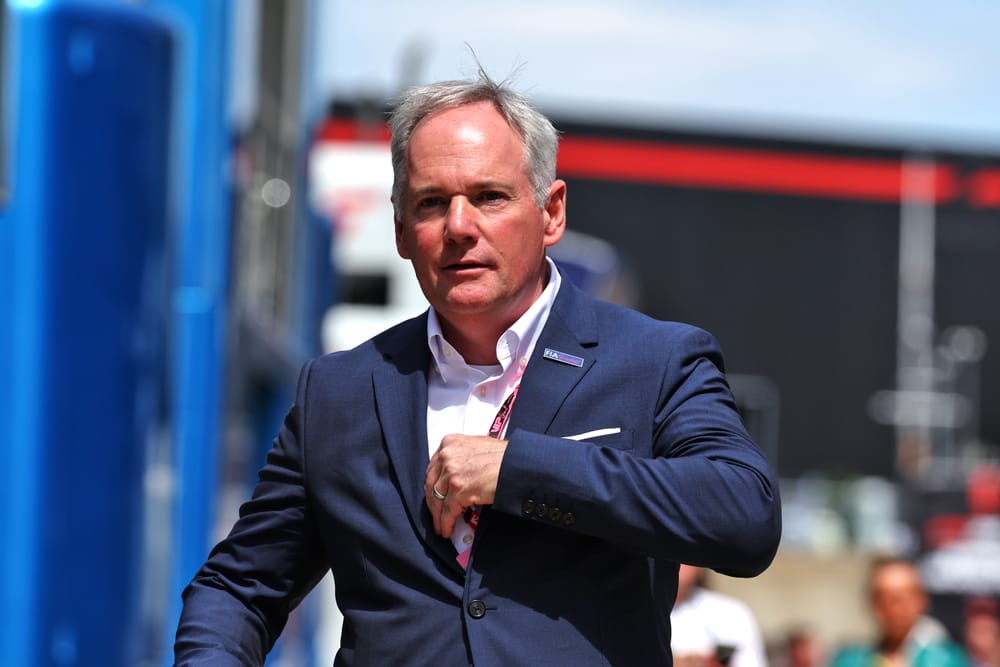FIA presidential hopeful Tim Mayer has shown from the off he will not be afraid to get on the offensive in what looks set to be a hard-fought election campaign.
Having officially declared his candidacy at a hotel near the Silverstone racetrack on Friday morning, Mayer wasted no time in speaking out against what he felt were the failures of incumbent Mohammed Ben Sulayem.
The American, a former Formula 1 chief steward and the son of McLaren co-founder Teddy Mayer, feels that Ben Sulayem’s four years in charge have not delivered what was originally promised – which is why he feels now is the time for change.
While being clear he did not want to “go into the gutter” and get involved in a dirty fight for control of the top job at the FIA, he equally does not want to shy away from how unhappy he is about certain things.
The Race caught up with Mayer after his press conference to learn a little more about the trigger point for him deciding to seek election as president, and what he intends to change.
Dismissal provided opportunity
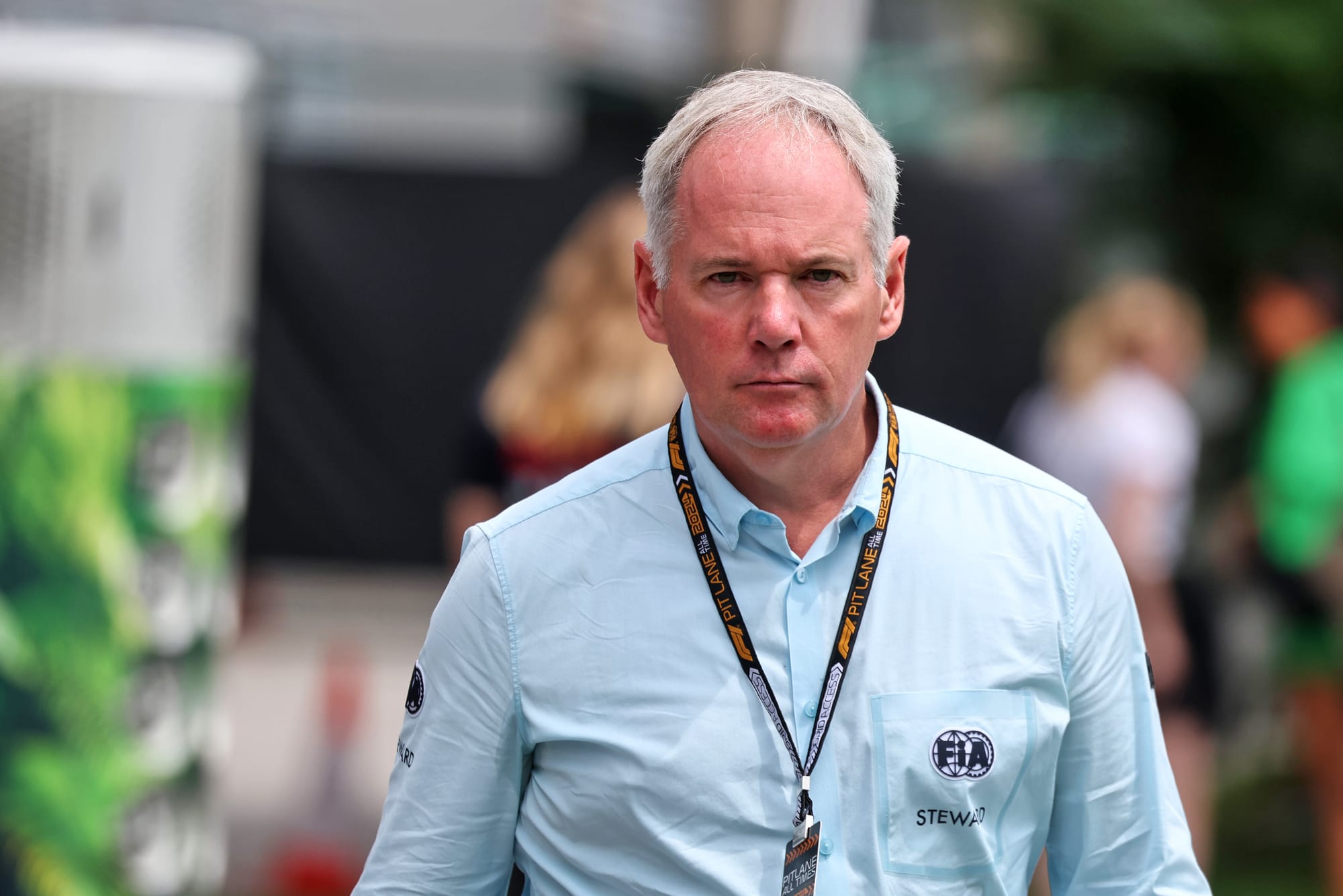
Mayer has been involved in motorsport officialdom for almost 35 years, but says that the idea of standing against Ben Sulayem only came into his mind at the end of last year.
That was in the wake of his dismissal as an FIA F1 steward amid the fallout from a track invasion at the United States Grand Prix.
“I had an opportunity in November,” Mayer explained to The Race. “Mohammed relieved me of my duties as a steward in F1, and I had an opportunity to reflect on the state of the FIA, the state of the leadership there, the state of the organisation, and think that there could be a better way forward.
“It was a momentous decision. It was one that was made not lightly, but it was one that I felt was necessary. We've talked with a lot of people. We've had a lot of support in this. So that decision was made around January to head forward.”
'Miles apart'
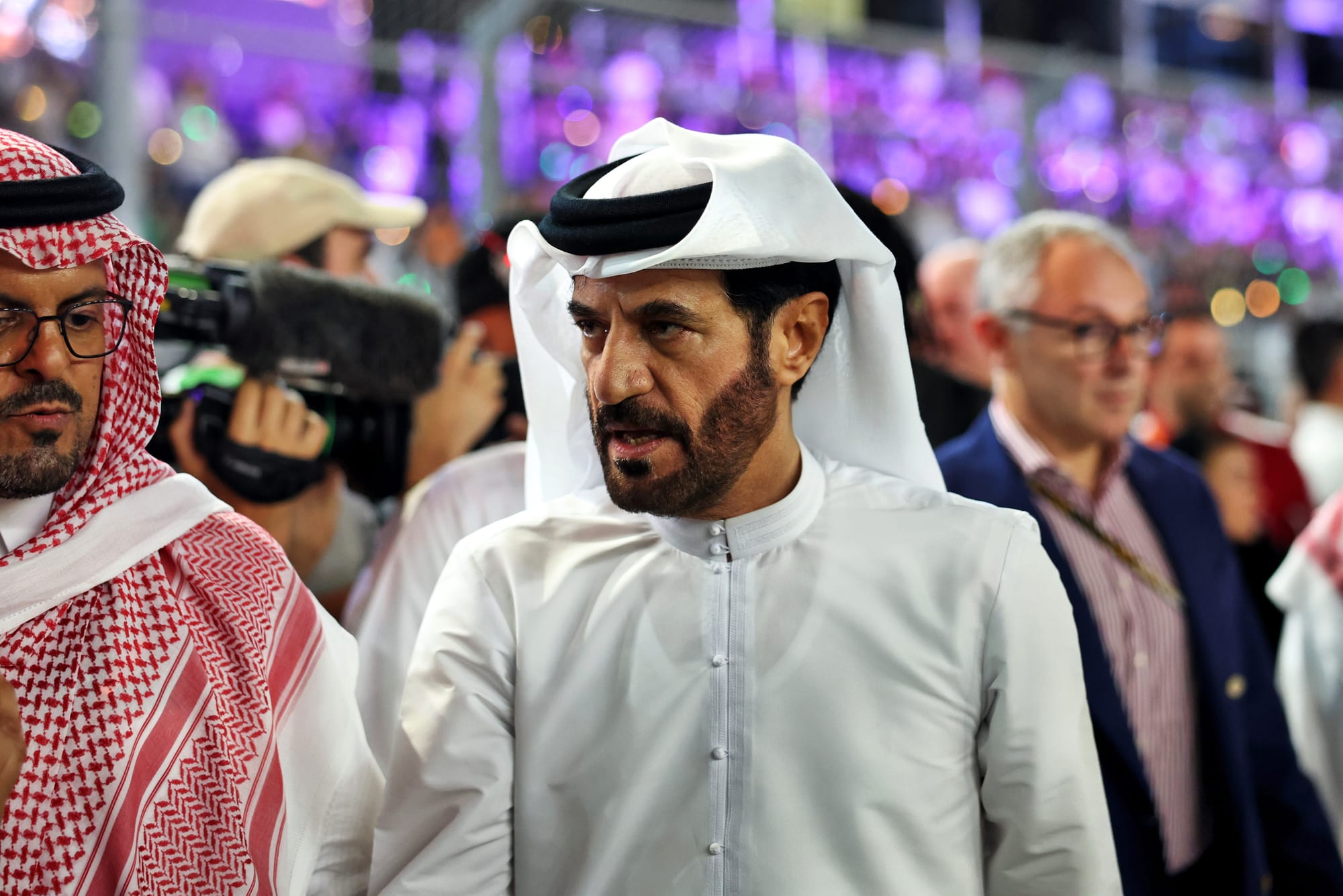
Mayer made clear during the press conference that the ticket that Ben Sulayem stood on at the last election – of transparency and improved governance – was the correct one.
As he said in his press briefing: “Mohammed Ben Sulayem ran on good ideas: value for smaller clubs, transparency, reform. The message was right, the delivery has failed. Instead of reform, we've seen performance.”
Mayer suggested there were some who regretted having supported Ben Sulayem at the last election.
Asked why he felt the current presidency had not produced all that had been hoped for, Mayer said: “That is, in fact, the great question that a lot of us are asking.
“I think there are a lot of people that supported Mohammed who regret it in hindsight.
“He said all the right things: support for member clubs, particularly the smaller clubs in under-served regions, support for transparency, support for good governance, support for leadership in terms of bringing in new blood into the leadership of the FIA in terms of the organisation. So all of that was a good message.
“But that leadership that he brought in, he's also pushed out the transparency he said he was going to bring in, he's redirected.
“We've, in fact, had senate members who've been pushed out when they dared to exercise their ethics and financial oversight responsibilities.
"So this is what he ran on. This is what he's delivered. It's miles apart.”
'Death by 1000 cuts'
While Ben Sulayem feels that the changes he has made have put the FIA in a much stronger position both from a governance and financial perspective, Mayer does not see things that way.
He fears that another four years under the current regime, chipping away at elements that he feels have been recently eroded, would be a dark period.
Asked how corrosive it could be if Ben Sulayem stayed on, Mayer said: “I think that word corrosive is ideal for this situation.
“It's not a single blow to the organisation. It's death by 1000 paper cuts. And I think that's the problem.
“The FIA needs to be a respected organisation; a well led organisation, a well managed organisation, where a vision is articulated, where people are given the chance to execute on that vision, and people are encouraged to come to work every day. I think that's the thing that I see is worst at the moment.
"I also think that we are in a situation where it's very important for the member clubs that they see the value, that they see that they can get value. To be honest, Mohammed has been quite good at explaining to them what he's doing for them.
“But he needs to do it top to bottom, not just here and there for member clubs. It needs to be universal within the organisation.”
Team not in place yet
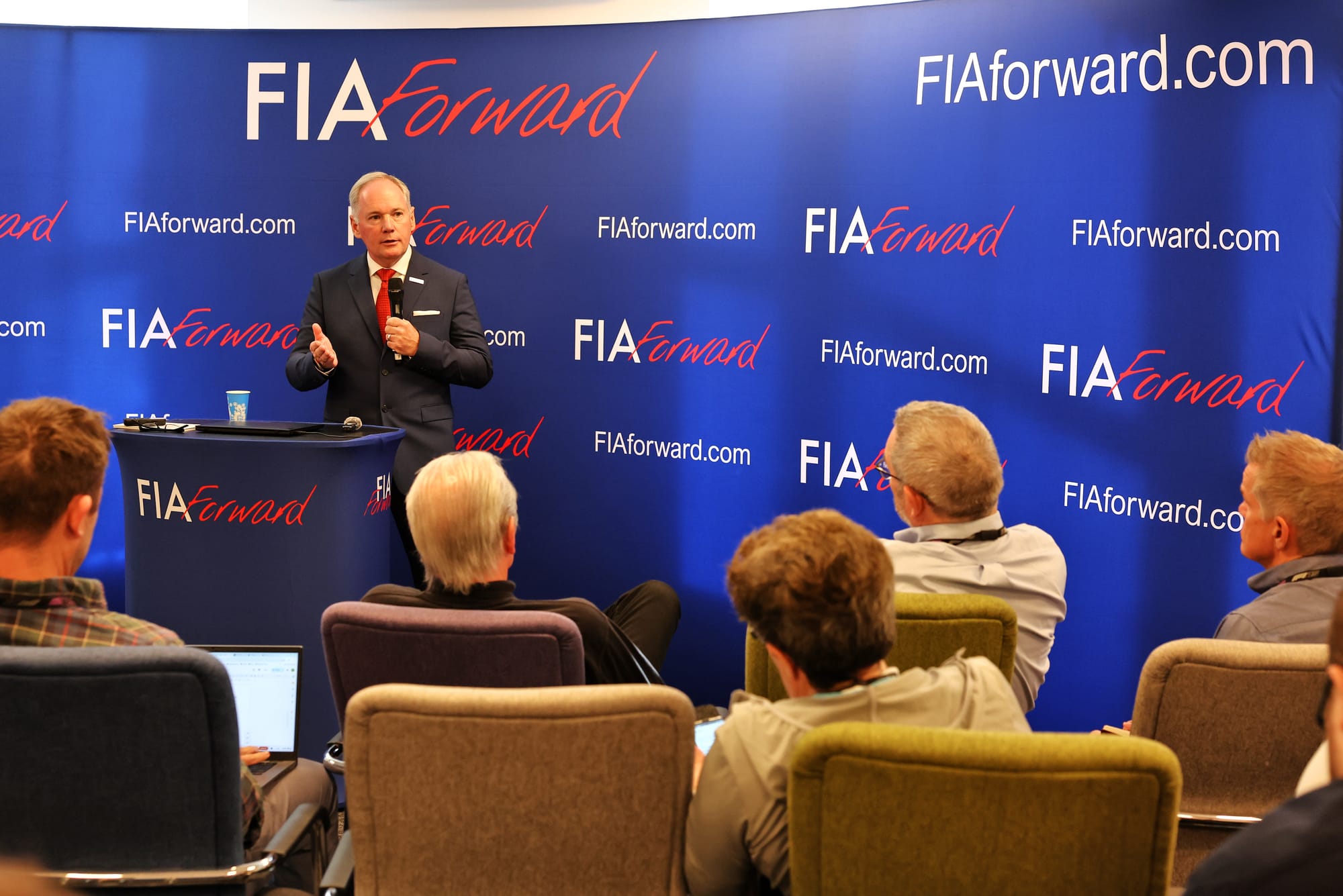
Mayer appeared at the press conference by himself, as he said that he had not yet finalised the 10-member list of candidates who must be pulled on board to support his election ticket.
There has been talk that Robert Reid, who was formerly Ben Sulayem’s deputy president of sport before resigning earlier this year, will be joining the Mayer campaign. However, Mayer said that was not yet locked in.
“I certainly have talked to Robert Reid,” he said. “He's a good friend. He's been a friend for 20 years. He's given me good advice at the moment.
“He's not part of the team, but we definitely have our eye on a couple of candidates that we're going to be talking to in the next 30 days.”
Dealing with F1
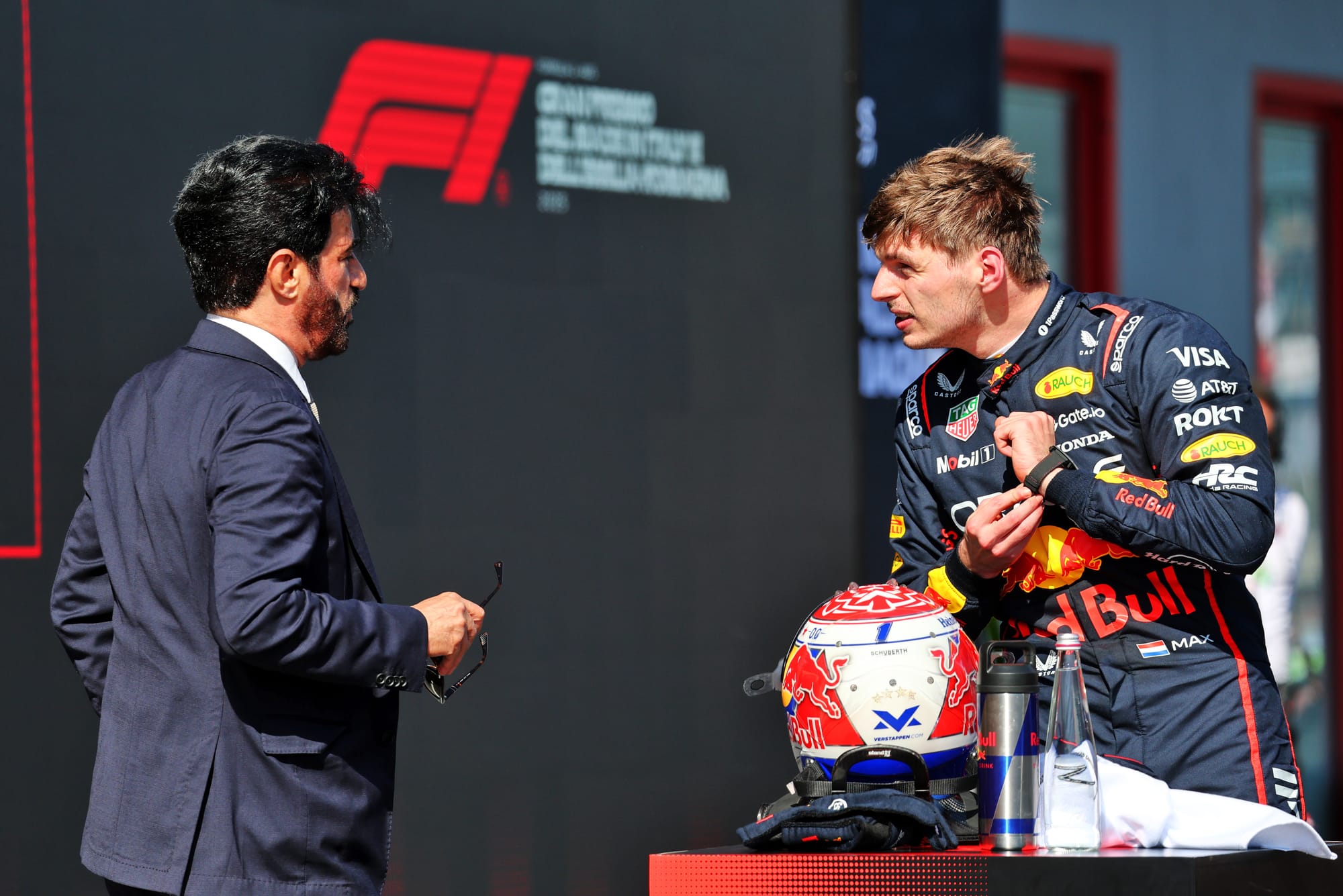
While the FIA is the governing body of multiple motorsport series, there is no doubt that the role it plays in F1 is one of its most critical.
Ben Sulayem has had a rollercoaster relationship with F1 owner Liberty Media since taking over, although more recently things have calmed down.
Mayer says one way he will change the relationship between the FIA and F1 is to listen more – rather than try to dictate the way things go.
“I'm somebody that's good at listening; so working with the stakeholders, listening to the drivers, listening to the teams. And asked: ‘what do we need for the future?’
“We need a clear set of regulations and a pathway for 10-15 years so that they can make investment decisions; that the drivers know what they're going to get, so that they have an input in what we're going to get.
“The FIA is not a promoter. It's not our job to promote the championship. That's F1. That's Liberty.
“However, they need a good base. They need something to work with, and that's the job of the FIA. We can do that better. We can be good listeners. We can work with them, not fight against them, and have respect.
“Treating people with respect is pretty good but for me, but debate is the way to get to a better decision.”
No treating drivers like children
Mayer has also made clear that he would open a new chapter in how the FIA deals with drivers – with the Grand Prix Drivers’ Association (GPDA) known to have expressed unease in the past about a lack of transparency and consultation with Ben Sulayem in recent years.
During his press conference, Mayer made reference to the way that needless flashpoints with drivers had popped up in the past – as he cited the example of the way the FIA went about strictly enforcing rules regarding drivers wearing fireproof underwear.
“When’s the next bomb getting dropped, the next scandal coming out?” he said. “When are we going to fuss again about drivers' underwear when that could be handled with an easy discussion? It’s not wrong, but is that really what the FIA president should be worried about?”
Asked by The Race what he thinks the relationship between drivers and the FIA should be, he said: “I think the drivers are critical.
“I've been in multiple championships. It's not just F1. Drivers want to be treated with respect. They want to be treated like adults. Everything they do is hugely risky, and to treat them as if they're naughty school children is just not right.
“They need to know that we've got their back. They need to know that we're worried about their safety. They need to know that we respect that they are stars, that they have an opinion, and it's a valuable opinion.
“For me, that relationship, absolutely, it can get better.”
The real failings in stewards' terms
One of the touchpoints between the FIA and fans is the policing of incidents in F1 through the stewards.
A repeated criticism over the years has been a lack of consistency, which has triggered comments that flare up occasionally about whether the time is right for full-time officials to be appointed.
Mayer, through his more than 15 years of experience as an F1 steward, has seen things from the other side of the fence – and does not agree with the criticism that is sent their way.
However, he thinks the FIA has let things down by not having a proper succession plan to bring on the officials of the future.
“I would challenge the idea that the stewards’ decisions aren't consistent,” he said. “We've actually done some studies in the background and the stewarding decisions are remarkably consistent.
“We've done some surveys with the teams and drivers, asking them for what their decision would be, and discovered that those line up quite well.
“It's the job of the team managers. It's the job of the drivers to say, 'OK, that decision wasn't good, that one wasn't'. That's just part of the game, and it's to be expected if you're a steward. The stewards have remarkable resources to make decisions.
“But I think where the weakness lies is not with the stewards that we have now, but the fact that we aren't nurturing an entire generation of stewards to come up behind them.
“I've got grey hair. I am the stereotypical 59-year-old white male. We need to be working with women in motorsport. We need to be working with people of colour from around the world.
“We need to be looking at diverse voices. We need to be bringing people in, into Race Control from all over the place. We've got great people working there now, but they're not supported by that next generation.”
The message for fans
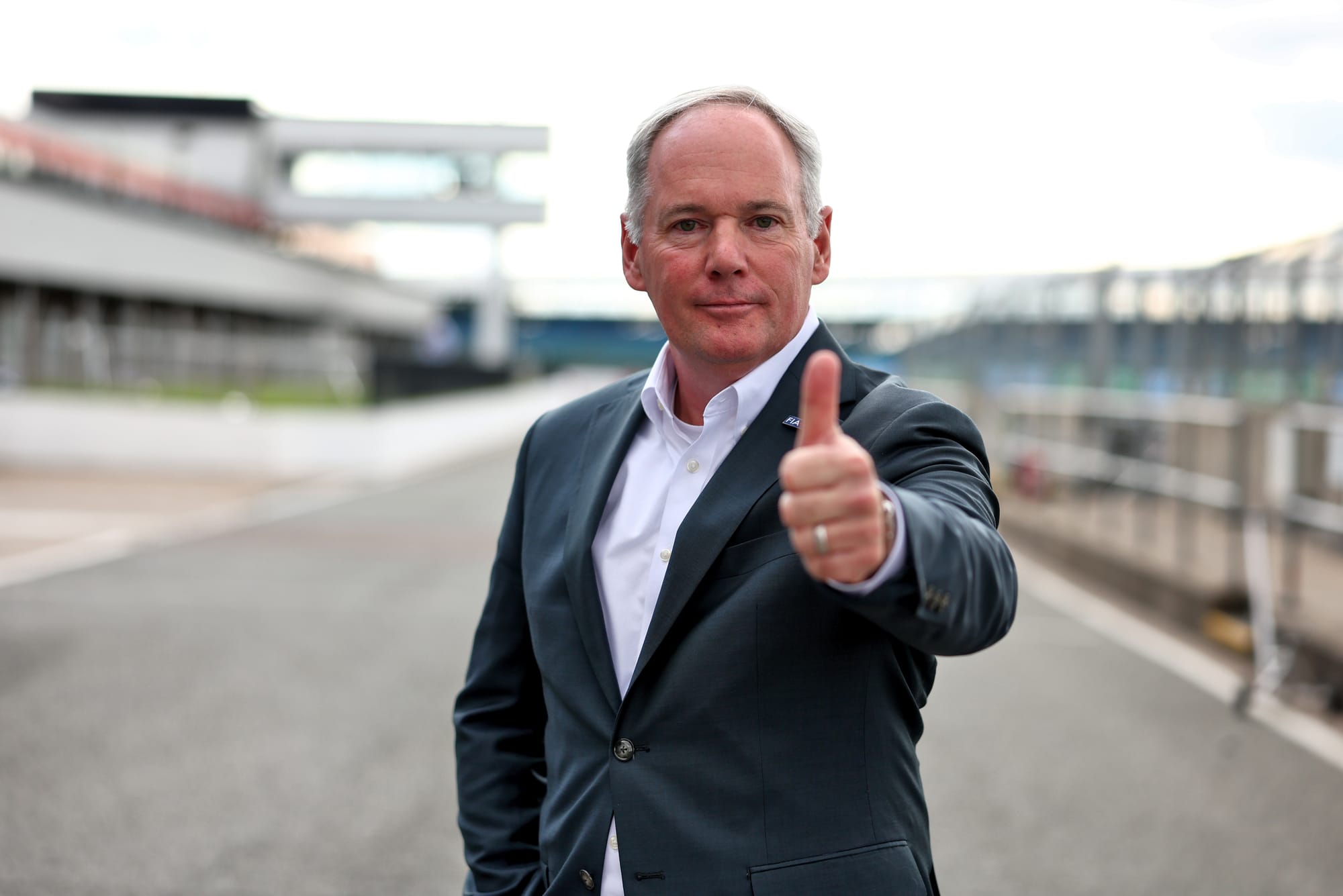
Mayer knows he faces a tough fight ahead to try to win the necessary votes among the FIA member clubs to succeed in the election.
But he is also mindful of how motorsport fans also view the governing body, which is why he has a clear message for them.
“I respect that the fans look to the FIA, look to the regulator, for consistency,” he said. “They look for fairness, look for a level playing field, and then kind of want the FIA to get out of the way because the race is on the track. That's what they come for.
“Nobody ever paid money to come to a motor race and watch stewards steward. No one ever paid money to come and watch the safety team do what they do.
“All of that is vital to the entertainment, but they want us to get out of the way at the same time. I will listen to the fans, I will listen to the teams and drivers, I will listen to the promoters. We will work together, and then we'll get out of the way.”


